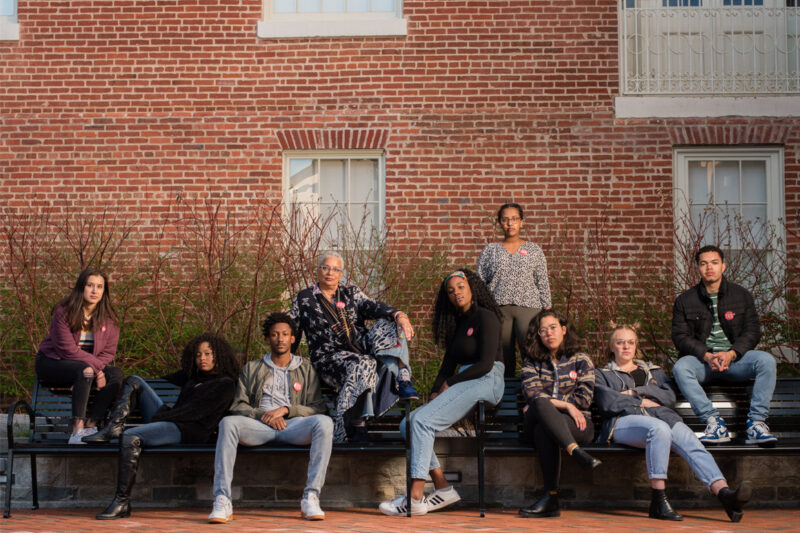Breaking News
When Black Horror Consumes Us
Jordon Peele might be the most recent master of “black horror” but Donald Glover was first with his FX series, Atlanta.
Read MoreA Black Officer, a White Woman, a Rare Murder Conviction.
In this week’s edition of Race/Related from the New York Times, journalist John Eligon brings us the news out of Minneapolis, where police officer Mohamed Noor has been found guilty by a racially diverse jury for the shooting and killing of Justine Ruszczyk. Despite the relief that the justice system can actually hold its law enforcement officers accountable, some have found the circumstances of the verdict a bit ironic: the officer convicted is a black, Somali, Muslim man, and his victim was a white woman. With the tables of race turned in this case from the usual story (white cop shoots, kills black man), there are those who question whether the guilty verdict in this case can be chalked up to justice or hypocrisy. At the end of the day, all we can do is let the facts of the case speak for themselves – regardless of whose skin is what color – and let justice be served to all under the law, even those whose duty it is to enforce it.
Read MoreOf Figurative Painting and a First Lady
Amy Sherard was the first African American woman commissioned to paint a first lady of the United States.
Read MoreJob Announcement: ABHM Seeks New Executive Director!
The Dr. James Cameron Legacy Foundation seeks new Executive Director for its rebuilt America’s Black Holocaust Museum in Milwaukee, Wisconsin. Deadline to apply: May 17, 2019.
Read MoreMaryland’s Only Black-Owned Movie Theater Is Drawing Crowds From Across The Country
By Phillip Lewis, The Huffington Post When Anthony Fykes and Robert Wright met, they immediately connected through their love for movies. But the pair never imagined that a shared passion for cinema would lead them to open their own theater together. NextAct Cinema, the only black-owned movie theater in the state of Maryland, opened on March…
Read MoreThe Legacy of Dr. James Cameron: Founder of America’s Black Holocaust Museum
At 16 years of age James Cameron said he escaped being lynched by divine intervention. He dedicated his life to civil rights for black people and went on to found the America’s Black Holocaust Museum.
Read MoreWas the Real Lone Ranger a Black Man?
Although born into slavery, Bass Reeves went on to gain a reputation for bravery and non-compromising honesty as a law man in Indian Territory after the civil war. The only thing that made him hang up his badge and gun was a new 1907 Oklahoma state law that banned this American Descendant of Slaves from holding office as a deputy marshal. Author Art T. Burton wrote the book, Black Gun, Silver Star: The Life and Legend of Frontier Marshal Bass Reeves and stated that Bass Reeves might have inspired the story of the Lone Ranger.
Read MoreThis Could Be the First Slavery Reparations Policy in America
Georgetown University under-graduate students are taking the lead in addressing the issue of compensation for American descendants of slaves (ADOS). They will vote to tax themselves (reconciliation fee) to create a fund to benefit the descendants of 272 slaves sold to save the university.
Read MoreScholar Jonathan Metzl: White supremacy is literally killing white people
People do not always act in their own self interest. This is evident in Jonathan Metzl’s book, Dying of Whiteness. Life choices appear to be based on racial hierarchy and willingness to do without or die if it keeps non-whites in their place. Racism trumps living the American dream.
Read MoreElisa Shankle Is Encouraging Her Community To Be Brave And Heal
As Women’s History Month 2019 draws to a close, Huffington Post journalist Julia Craven brings to us the stories of 11 black women who are strong yet relatively unknown advocates for the encouragement of others in their community. One of these unsung heroes is Elisa Shankle, co-founder of Brooklyn’s “HealHaus,” a smoothie shop and community space where marginalized members of the community are welcome to come in, enjoy a smoothie, and improve their mental, emotional, and physical well-being. Though our world is full of many troubles, how encouraging it is to see folks still taking measures to help each other out!
Read More


